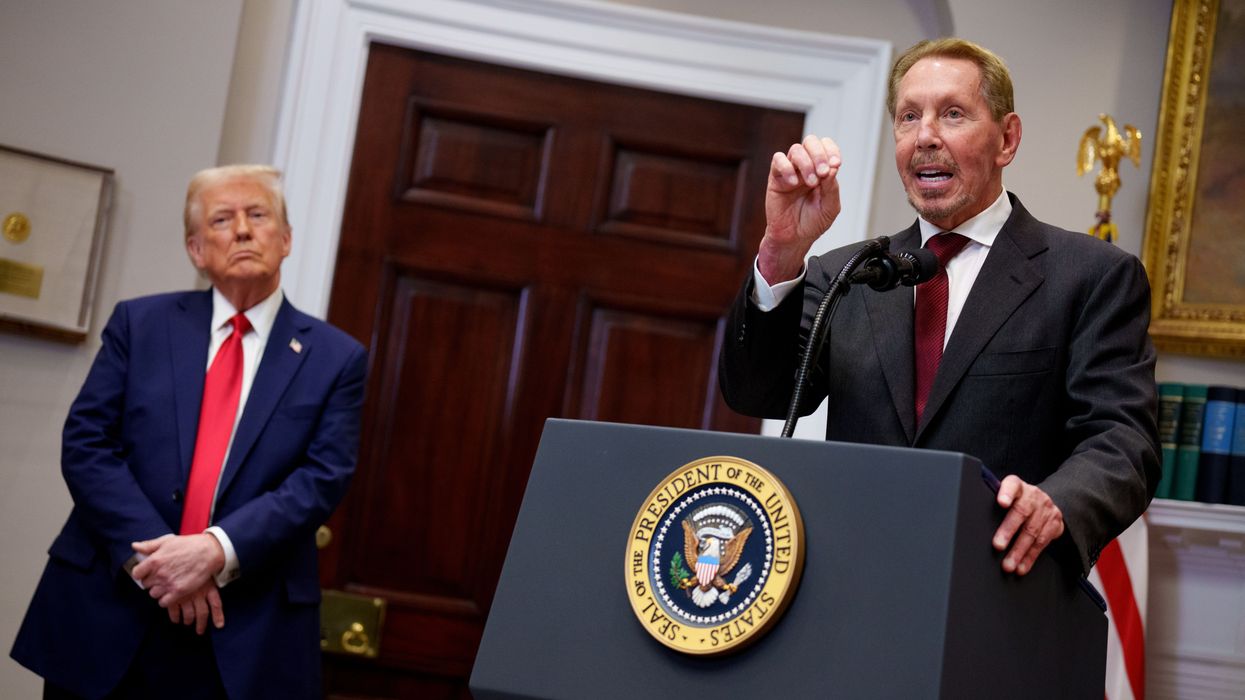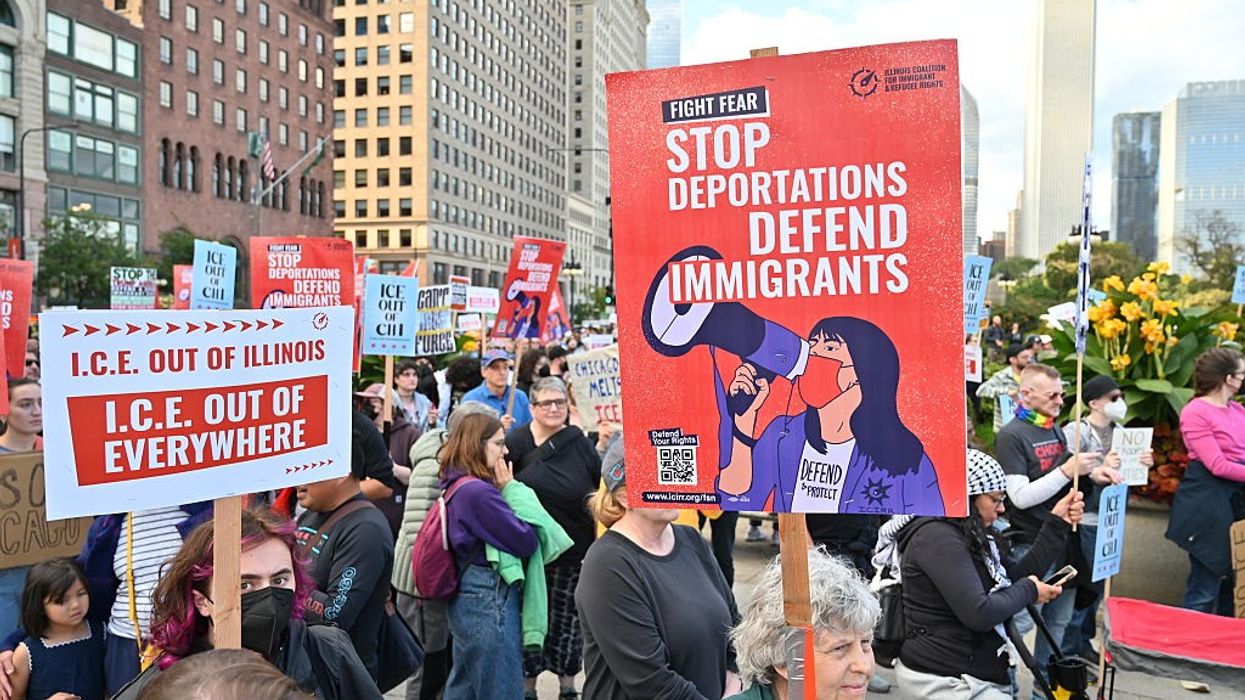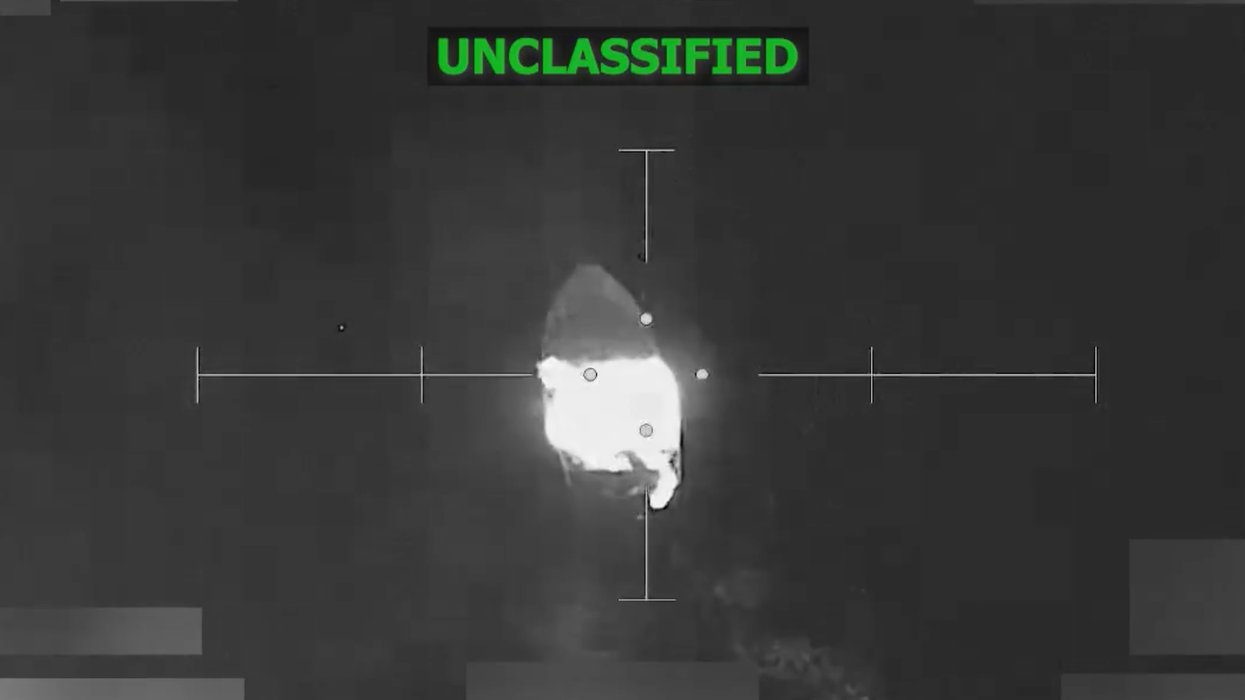November, 09 2016, 11:30am EDT

Election Yields Major Turning Point for Criminal Justice Reform as Voters Approve Two Ballot Initiatives in Oklahoma to Overhaul Broken System
With Second Highest Incarceration Rate in the Country, Oklahoma Now on a Path to Reduce Incarceration Rate, Signaling Shift in National Reform Strategy to Focus on States as Ground Zero for Justice Reforms
NEW YORK
Today, Anthony D. Romero, executive director of the American Civil Liberties Union, released the below statement following the approval of two Oklahoma ballot initiatives representing the most ambitious effort to overhaul the state's criminal justice system. With the second highest incarceration rate in the nation, Oklahoma has long struggled with getting reform efforts off the ground. The successful campaign, led by a bipartisan coalition of on-the-ground allies -- including the ACLU of Oklahoma -- in the state, successfully secured two state questions on the ballot that will reduce the prison population, redirect savings toward addressing the root causes of crime, and provide rehabilitation and treatment services to return people to productive lives in their communities.
"Last night's approval of State Questions 780 and 781 by the voters of Oklahoma not only represents a major step forward in reducing the state's prison population, but represents a game-changing moment for criminal justice reform nationwide," Romero said. "At a time when advocates for reform have seen federal efforts stalled by the partisan gridlock created by the election cycle, a bright spot emerged in Oklahoma -- the reddest of the red states -- where voters spoke in unison: it is time to reform our broken justice system. This effort signals a shift in strategy for reform advocates everywhere, who are turning their focus from Capitol Hill toward the states as ground zero for the fight to overhaul and transform our justice system. Last night's victory inspires a new strategy anchored by coalition building at the local level, and will be remembered as a turning point in the ongoing fight to reform our justice system."
The successful "Yes on 780 and 781" campaign, which launched in January, generated tremendous support from Oklahomans across the state, including some of the state's most prominent and respected law enforcement officials, faith leaders, business leaders, healthcare and medical professionals, and elected officials.
From March to June, the campaign collected more than 220,000 signatures from Oklahomans across the state to qualify State Questions 780 and 781 for the November ballot -- far exceeding the 65,000 signatures per question required. In the months following, the campaign crisscrossed the state hosting a series of town halls, community conversations, and other events bringing the conversation directly to the people of Oklahoma.
Polling throughout the campaign revealed the conversation was having an impact, and Oklahomans were responding.
The Need for Reform
Oklahoma has the second-highest overall incarceration rate in the country and the highest incarceration rate for women, which costs taxpayers more than $500 million annually and drains significant resources away from investments that can do more to provide necessary rehabilitation and training programs, and ultimately enhance public safety. As the state's prison population continues growing -- increasing by 12 percent between 2009 and 2014 -- so does its price tag, which has increased by 172 percent in the past two decades.
State Questions 780 and 781
Through two ballot measures -- Questions 780 and 781 -- the coalition worked to pursue sentencing reforms for certain low-level offenses, which trigger cost savings to be invested in evidence-based programs to treat drug addiction and mental health conditions and provide access to education and job training, which are more effective approaches to reducing crime and keeping communities safe. The savings will be redirected back to the counties so that local communities can determine how best to tailor rehabilitative services to the specific needs of their communities.
Question 780 will reclassify certain low-level offenses, like drug possession and low-level property offenses, as misdemeanors instead of felonies. By reclassifying these offenses, Oklahoma is able to trigger cost savings from decreased corrections spending. Question 781 will then invest those cost savings into addressing the root causes of crime through rehabilitation programs to treat drug addiction and mental health conditions that often contribute to criminal behavior and go untreated in prison, and education and job training programs to help people find employment, and avoid going back to prison.
Removing the felony conviction for individuals battling addiction and mental illness and redirecting costs savings back to counties for treatment services represent logical next steps toward building on and strengthening the reforms signed into law.
The American Civil Liberties Union was founded in 1920 and is our nation's guardian of liberty. The ACLU works in the courts, legislatures and communities to defend and preserve the individual rights and liberties guaranteed to all people in this country by the Constitution and laws of the United States.
(212) 549-2666LATEST NEWS
'Another Backdoor Deal'? Billionaire Trump Ally Larry Ellison at Center of TikTok Spin-Off
"TikTok has officially been sold to the worst people on Earth," wrote one activist, "and no this is not an Onion headline."
Dec 19, 2025
A group of investors including Oracle—a software giant led by billionaire Trump ally and GOP megadonor Larry Ellison—is set to control TikTok's US operations under a spin-off agreement formalized Thursday, raising concerns of undue political influence on the short-form video app used by around 170 million Americans.
TikTok's Chinese owner, ByteDance, signed a binding deal under which Oracle, the private equity group Silver Lake, the Abu Dhabi-based firm MGX, and other investors will hold an 80.1% stake in the newly formed US TikTok entity.
NPR reported that under the agreement, "TikTok's US algorithm will be retrained with only Americans' data" and "content moderation rules around what is permitted and what is not will be set by the new investor-controlled entity."
The deal, which stems from an executive order that President Donald Trump signed in September, averts a TikTok ban in the US.
Last year, former President Joe Biden signed widely criticized legislation that would have banned the platform in the US if ByteDance did not sell it. The measure was inserted into broader legislation that included billions in military aid for Ukraine, Taiwan, and Israel.
US Sen. Elizabeth Warren (D-Mass.), who voted for the package that included the potential TikTok ban, called for close scrutiny of the new agreement. Warren pointed to the Trump administration's approval earlier this year of the merger of CBS News owner Paramount and Skydance—a company run by David Ellison, the son of Larry Ellison.
"First Paramount/CBS and now TikTok. Trump wants to hand over even more control of what you watch to his billionaire buddies," Warren wrote in a social media post on Thursday. "Americans deserve to know if the president struck another backdoor deal for this billionaire takeover of TikTok."
Evan Greer, director of Fight for the Future, wrote in response to the deal that "TikTok has officially been sold to the worst people on Earth and no this is not an Onion headline."
Keep ReadingShow Less
Rights Groups Warn FBI Probe of Anti-ICE Activity Portends New Crackdown on Lawful Dissent
"People who are entirely innocent of any wrongdoing can be subjected to surveillance or investigation," said one critic of the FBI memo. "That imposes stigma."
Dec 19, 2025
Rights groups are expressing alarm over new reporting about the FBI carrying out nationwide anti-terrorism probes against activists protesting against federal immigration enforcement officers.
The Guardian on Friday published a report detailing an internal FBI document that outlines "criminal and domestic terrorism investigations” into “threats against immigration enforcement activity” in 23 regions across the US.
The FBI document, which was dated November 14, is a response to National Security Presidential Memorandum-7 (NSPM-7), a directive signed by President Donald Trump in late September that demanded a “national strategy to investigate and disrupt networks, entities, and organizations that foment political violence so that law enforcement can intervene in criminal conspiracies before they result in violent political acts."
The FBI report cites two violent attacks against Immigration and Customs Enforcement (ICE) facilities in Texas to argue that there has been "an escalation in violence compared to past attacks, which primarily resulted in property damage."
Additionally, the FBI report directs agents to look for "indicators" that an anti-ICE activist may be planning to carry out an attack on immigration enforcement officials, including "stockpiling or distributing firearms," as well as using encrypted messaging apps and "conducting online research" about immigration agents' movements and locations.
The last two of these three "indicators" are raising red flags for rights groups, which are warning that they could be used as the pretext for mass infringement of constitutional rights to speak freely and protest peacefully.
Rachel Levinson-Waldman, director of the Liberty and National Security Program at the Brennan Center for Justice, told the Guardian that the FBI appeared to be treating US citizens with suspicion for engaging in activities protected by the First Amendment.
"It is not illegal to do online research about the publicly available movements of government officers or to communicate through encrypted apps like Signal or WhatsApp," she said. "While the document refers to using encrypted communications to ‘discuss operational planning’, that term is undefined and ambiguous, leaving it open what kinds of conversations might draw FBI scrutiny."
Hina Shamsi, director of the ACLU National Security Project, expressed concern to the Guardian that the FBI document is "infused with vague and over-broad language, which was exactly our concern about NSPM-7 in the first place."
"It invites law enforcement suspicion and investigation based on purely First Amendment-protected beliefs and activities," Shamsi explained. "People who are entirely innocent of any wrongdoing can be subjected to surveillance or investigation. That imposes stigma. It can wrongly immesh people in the criminal legal system."
Adam Goldstein, vice president of strategic initiatives at the Foundation for Individual Rights and Expression (FIRE), published an analysis on Thursday that criticized a recently unearthed memo from Attorney General Pam Bondi that fleshed out the concepts laid out in NSPM-7.
In particular, Goldstein argued that Bondi's memo risks using law enforcement to investigate people based on their political ideologies rather than on suspicion that they are engaging in criminal activity.
"People who conspire to engage in actual criminal behavior should be investigated, arrested, and prosecuted," Goldstein wrote. "But these memos aren’t narrowly focused on groups that exist for the purpose of ideologically motivated violence, which act to bring about violence; they broadly condemn particular viewpoints and lay a foundation for a government watchlist of American groups which share those viewpoints."
Keep ReadingShow Less
'Do Not Become Inured': Death Toll From Trump Boat Strikes Tops 100 After Latest Murders
"This is premeditated killing outside of armed conflict. We call that murder," said one expert.
Dec 19, 2025
The US military on Thursday bombed two vessels in the eastern Pacific, killing at least five people and pushing the death toll from the Trump administration's lawless military campaign in international waters above 100.
Thursday's strikes marked the third time this week that the US military has bombed boats operated by people accused, without evidence, of smuggling drugs. None of the dozens of strikes that have now killed at least 105 people since early September have been authorized by Congress, and legal experts at home and abroad have said the attacks clearly constitute murder.
Brian Finucane, a senior adviser with the US Program at the International Crisis Group, warned against allowing the Trump administration to normalize and escape accountability for its extrajudicial killings.
"The lawless killing spree continues. Do not become inured," Finucane wrote on social media. "This is premeditated killing outside of armed conflict. We call that murder."
As with previous attacks, the Trump administration attached a short video clip to its announcement of the Thursday strikes, which came amid mounting fears that President Donald Trump is dragging the US into an illegal war with Venezuela and possibly other South American countries.
On Dec. 18, at the direction of @SecWar Pete Hegseth, Joint Task Force Southern Spear conducted lethal kinetic strikes on two vessels operated by Designated Terrorist Organizations in international waters. Intelligence confirmed that the vessels were transiting along known… pic.twitter.com/CcCyOgYRto
— U.S. Southern Command (@Southcom) December 19, 2025
But US Defense Secretary Pete Hegseth is refusing to release footage of at least one of the deadly strikes that he authorized with a verbal order to "kill everybody" onboard the targeted vessel.
"We’re not going to release a top secret, full, unedited video of that to the general public,” Hegseth told reporters earlier this week, referring to footage of a September 2 attack in the Caribbean that killed the survivors clinging to wreckage from an initial strike.
The ACLU's Jeffrey Stein and Christopher Anders wrote Thursday that "if a president can murder civilians at sea and keep the legal justifications secret, we should all be concerned."
"The harm is even worse when basic factual evidence, such as full videos and orders, is also hidden from the American people," they continued. "Transparency can’t wait while the government murders more people. That’s why we’re asking everyone to send a message to their representatives in Congress urging them to act now. Demanding answers, insisting on public hearings, and refusing to accept secret law as a license to kill, is how we can all help stop these unlawful strikes and defend the basic principle that no one—not even the president—is above the law."
The latest bombings came a day after House Republicans blocked a pair of resolutions aimed at stopping the Trump administration's unauthorized boat strikes and march to war with Venezuela.
In the Senate, Ruben Gallego is pushing a new resolution that "orders the US Armed Forces to immediately cease hostilities against vessels in the Caribbean Sea and the eastern Pacific Ocean unless authorized by Congress."
"If the president believes the use of military force is necessary, he needs to come talk to Congress first and make that case. The decision to use military force is one that requires serious debate, and the power to declare war unambiguously belongs to Congress under the Constitution,” said Gallego. “As an Iraq war veteran, I know the costs of rushing into an unnecessary war and that the American people will not stand for it.”
But Trump insisted Thursday that he doesn't "have to" go to Congress before taking military action.
Asked if war with Venezuela is a possibility, Trump said, "I don’t rule it out."
Keep ReadingShow Less
Most Popular


